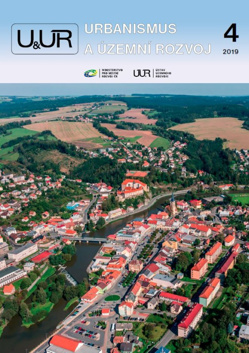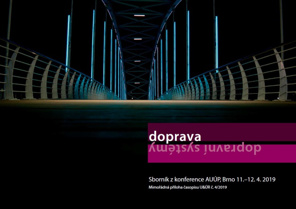

A typology of Czech micro-regions, by Radim Perlín, Marek Komárek, Miroslav Marada, Tomáš Havlíček, Vít Jančák, Pavel Chromý and Hana Bednářová
The typology of micro-regions of the Czech Republic as based on the system of municipalities with extended powers and administration wards of authorized municipalities offers an opportunity to formulate differentiated tools for development. This typology is based on the analysis of a large set of input data that describe internal opportunities and/or barriers for development as well as various external features of each territory. Input data were collected and integrated within administration wards of municipalities with extended powers and authorized municipal offices. Assessing each region by its internal opportunities and external characteristics makes it possible to differentiate between various types of territories with diverse prerequisites for development. The article evaluates the results of the typology, comments on various options of interpretation, provides knowledge about some important features of various types of territories and presents a new approach to the regional differentiation of the Czech Republic. Classification by abilities and opportunities to develop is a key parameter for the adjustment of tools of regional, nationwide and European support for regional development.
Obligatory statements by spatial planning bodies; experience from practice, by Iveta Laštůvková
A new concept named obligatory statement of a spatial planning body was added to the Building Act 183/2006 by its Amendment 225/2017 as published in the Legal Code dated 31 July 2017. Based on the new provision of § 96b of the Building Act, since 1 January 2018, spatial planning bodies have had the duty to publish obligatory statements on plans as a basis for specific decisions and measures taken by the building offices. Written by an official of a spatial planning body at a municipality with extended powers, this article describes experience gained from the practice of publishing these statements.
What are the conditions for the elaboration of spatial plans? by Martin Tunka
This article is focused on the conditions and circumstances that influence the preparation and elaboration of spatial plans. It is based on the results of the Analyses of the State of the Building Order and Spatial Planning, which are regularly submitted to the government of the Czech Republic. The analyses for the periods of 2008–2010, 2011, 2012–2014 and 2015–2017 have identified several problems in developments and activities related to spatial planning. As such, these analyses are applicable as a source of knowledge for alterations of legal provisions and conditions for public administration in spatial planning.
A debt owed by spatial planning to territorial values: Efforts to preserve values of historic rural buildings in Central Bohemia and other locations, by Jitka Mejsnarová
This article highlights the importance and irreplaceability of historic buildings as values in rural settings. Identifying various reasons why the preservation of these values is neglected despite being a principle of spatial planning, the article enumerates several options of improvement provided by spatial plans such as professional analysis of values in territories, specific assignments as part of spatial plans and proper elaboration of these plans. These possibilities are not always well used for the public benefit of preservation, restoration and adaptation of historic buildings.
Doing Business 2019 or competitiveness in building authorization, by Vít Řezáč
The building industry is an ever more complicated business. The World Bank’s Doing Business survey has revealed an unpleasant fact: the Czech Republic is falling behind in terms of its ability to compete for real estate investment. The process of authorization is extremely long, technical requirements are increasingly complicated, market discrepancies are on the rise and housing is beyond the means of ever more people. Should we look for new models of public and private cooperation?
Spatial reserve in the Ombudsman’s opinion, by Marek Hanák
The public defender of rights was addressed by a land owner with a complaint raised for classifying a plot of land as spatial reserve for construction of a ring road. The complaining party’s objection was that the owner would have liked to sell the plot but it became unsaleable as a consequence of such classification. The article indicates how the courts of law approach the concept of spatial reserve, particularly in terms of ownership rights.